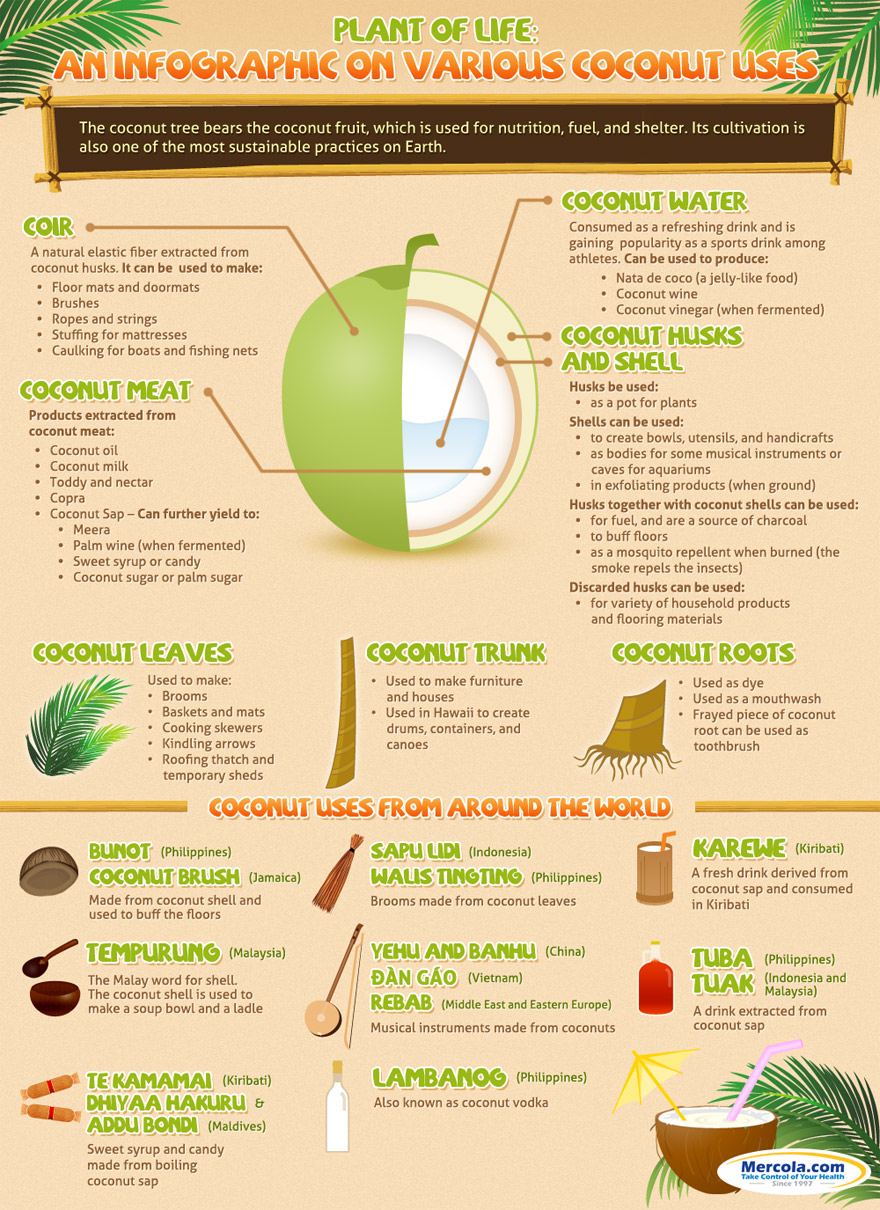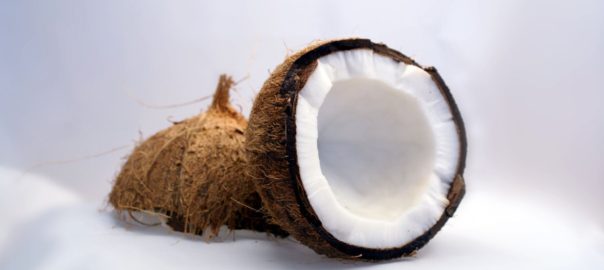After being vilified for many years, coconut oil is making a comeback. The oils have a wide variety of uses beyond cooking and can be used as a moisturizer, as a makeup remover, even to help prevent hairballs in cats (seriously).
There are also emerging studies that appear to indicate that the oil can be highly beneficial for brain health, helping with neurophysiological disorders such as Parkinson's Disease.
It turns out the oil may be beneficial for a wide range of health issues. Dr. Bruce Fife, author of The Coconut Oil Miracle, has a number of articles about this at the Foundation for Alternative and Integrative Medicine.
Discover how this tropical treasure can enhance your well-being and revolutionize your everyday life.
Health Benefits of Coconut
This remarkable plant offers a treasure trove of resources with numerous uses. Let's explore the health advantages it brings to the table.
- Hydration and electrolyte balance: Coconut water is a natural, hydrating beverage rich in electrolytes like potassium, sodium, and magnesium, which help replenish fluids and maintain proper hydration levels.
- Heart health: Despite being high in saturated fats, coconut products have been associated with increased levels of beneficial HDL cholesterol, which can support heart health and improve overall cholesterol profile.
- Digestive health: The fiber content in coconut meat and coconut flour promotes healthy digestion, aids in regular bowel movements, and may support gut health by acting as a prebiotic.
- Weight management: Coconut products, particularly coconut oil and coconut milk, contain medium-chain triglycerides (MCTs) that can increase feelings of fullness and potentially boost energy expenditure, aiding in weight management.
- Brain health: Emerging research suggests that the MCTs found in coconut oil may have neuroprotective properties, potentially benefiting brain health and conditions like Alzheimer's disease.
- Immune system support: The lauric acid in coconut products exhibits antimicrobial, antiviral, and antifungal properties, which can support immune function by fighting against harmful pathogens.
- Skin and hair health: Coconut oil is a popular ingredient in skincare and haircare products due to its moisturizing properties. It can help hydrate the skin, reduce inflammation, and improve hair condition and shine.
- Nutrient absorption: The fat content in coconut oil can enhance the absorption of fat-soluble vitamins, such as vitamins A, D, E, and K, from other foods.
Ways to Use Coconut 
- Coconut meat: Coconut meat is not only a tasty treat that can be enjoyed fresh or dried, but it has also gained significant popularity in baking and among those who follow a paleo lifestyle.
- Coconut flour: the dried ground meat can be used in baking and is especially popular for gluten free baking. It's also a good source of protein with 100 g of coconut flour containing just over 19 g of protein.
- Coconut water: It is a fairly balanced electrolyte fluid; far tastier and is a far better beverage than the sports drinks which are touted for that purpose.
- Coconut milk: made from the ground meat this is a tasty dairy substitute that many people enjoy.
- Coconut cream: the solid section of the coconut milk which rises to the top; this can be skimmed off and used the same as whipping cream.
- Coconut oil: made from the meat, this is a healthy source of medium chain fatty acids and can be used in baking and cooking. It even makes a great facial moisturizer.
- Coconut sugar: Coconut sugar is even gaining in popularity as a healthier choice for a sweetener. The list goes on.
The infographic below shows a number of ways in which it can be useful.

Health questions about coconuts
Are coconuts a nut?
No. Although they contain the word nut in their name coconuts are not a nut, they are a drupe. It should be safe for those with nut allergies to consume coconut products. A drupe is the seed of a palm tree and is not botanically related to nuts or peanuts. However, if there is an allergy it would still be prudent to test in order to verify the absence of a coconut specific allergy.
It's saturated, I thought saturated fats were bad for you?
Coconut oil is indeed naturally saturated, however it got it's bad rap when scientists who were studying fats used hydrogenated coconut oil. Coconut oil is a nourishing fat, high in lauric acid (also found in mother's milk) which appears to have anti-viral, anti-bacterial, and anti-fungal properties. 2-3 tablespoons of coconut oil per day is a healthy addition to your nutritional plan.
Conclusion
In conclusion, coconut oil is making a remarkable comeback, offering versatile uses beyond cooking. From its potential benefits for brain health to its nourishing properties for the skin and hair, coconuts provide a lot of health advantages. Incorporating coconut products, such as coconut water, milk, oil, and flour, can diversify your culinary experiences while supporting hydration, heart health, digestion, and more.


